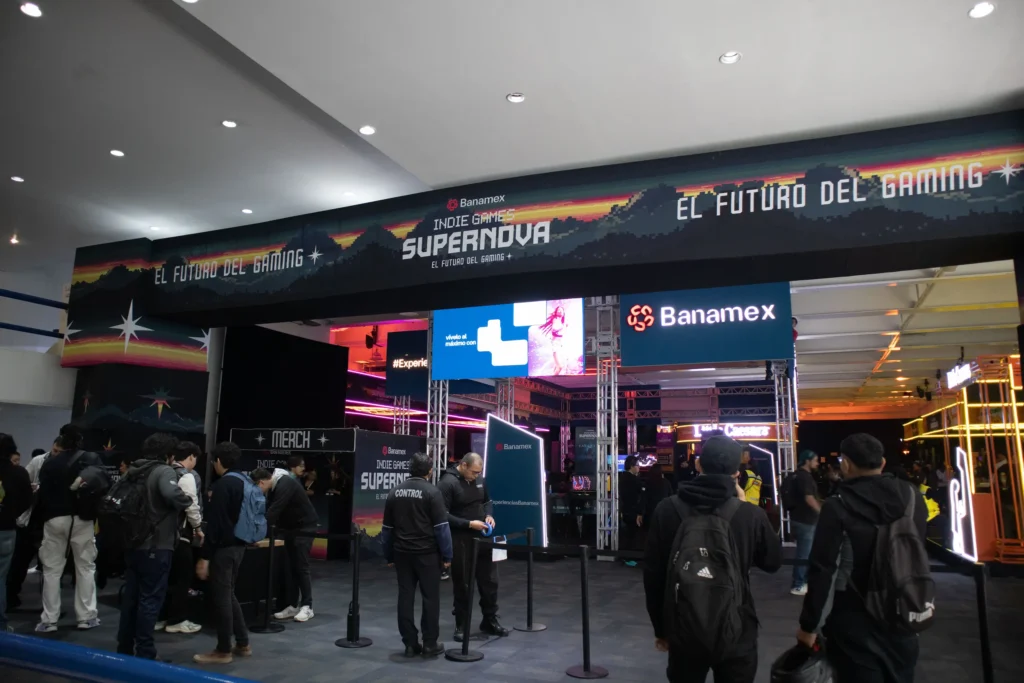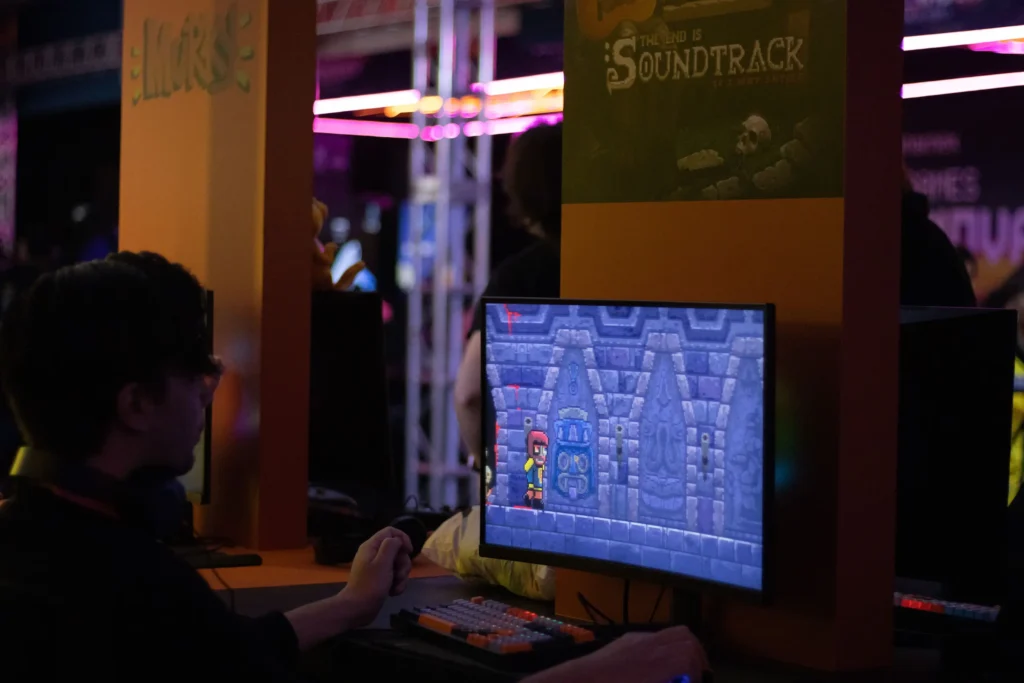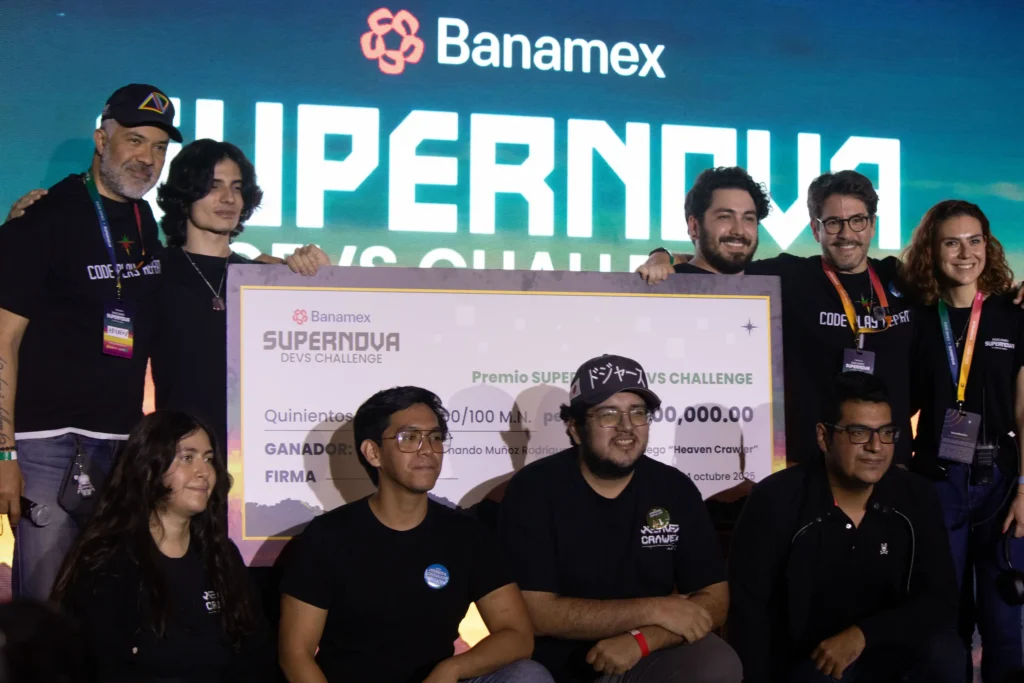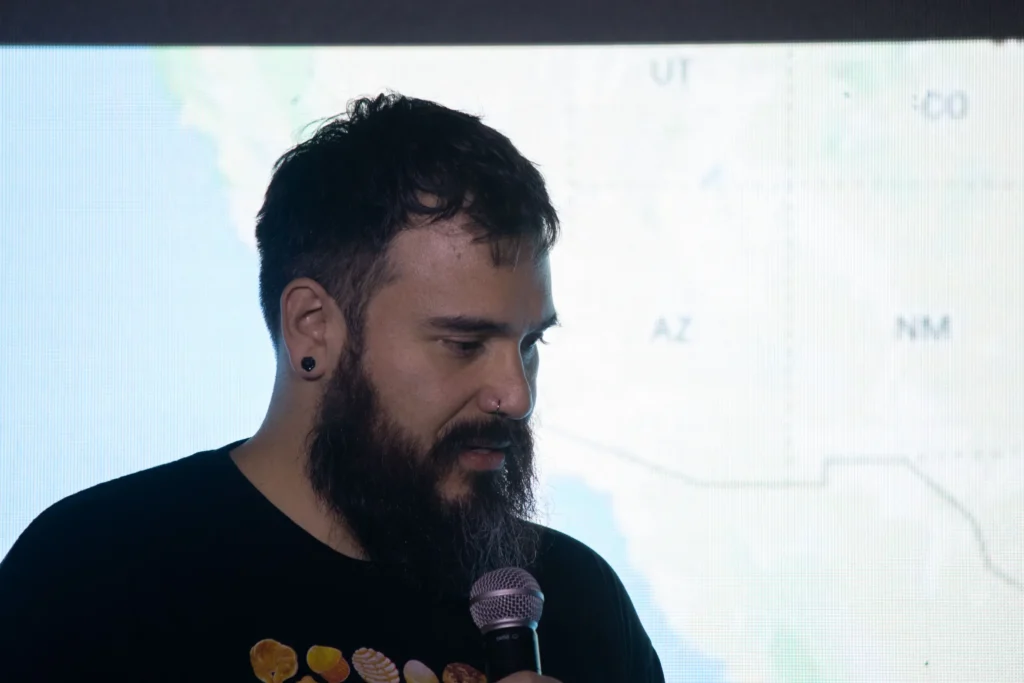In Mexico, there are already many developers looking to enter the video game industry, but experts and creatives who attended the Supernova Indie Game Fest warn that simply creating games isn’t enough; they also need to boost the industry from a logistical and marketing perspective.
Art shouldn’t be at odds with the commercial side; on the contrary, the possibility of realizing ever-greater creative ambitions depends on forming a company and not dying in the attempt to launch your first video game.
Thus, the Supernova Indie Game Fest is Mexico’s first independent video game festival, and it’s off to a good start.

Held on October 4th at Expo Reforma in Mexico City, the Supernova Indie Fest, organized by Banamex, brought together developers, fans, and those interested in exploring interactive software development under one roof.

Attendees had a unique opportunity to try out Mexican video games while the developers were at their side, answering all their questions.
PancitoMerge, War on Chiapas, Lucha Chess, The Lullaby of Life, Murky and Mexico, 1921. A Deep Slumber were just some of the many guests invited to show off their games in the exhibition area.
The Supernova Indie Game Fest also presented the Supernova Devs Challenge awards, which awarded half a million Mexican pesos to the video game Heaven Crawler. This competition is the culmination of a reality show in which six projects participated to show the world what they are capable of.

Keynotes were also held for anyone thinking about developing a video game; the experience of these industry leaders is pure gold for overcoming obstacles and avoiding repeating mistakes.
With the participation of Ovidio Escobedo of AlterGard; Paola Vera of Mácula Interactive; Game Conference MX organizer Abner Sable; Antonio Uribe, creator of Pancito Merge; and Blas Castañeda of Third World Productions, among other prominent Mexicans, this event couldn’t have had better guests.

The opinions and paths of these developers were very diverse, but they all agreed on one thing: it’s not enough to make video games; they also have to be launched on the market.
This might seem like an obvious point, but often, inexperienced developers enter the fray with a wealth of talent but no marketing, legal, or financial planning knowledge to ensure the commercial success of their product.

The speakers encouraged the new generation of developers to consider the corporate aspect and not leave it to chance, because if companies approach them to finance their project, their ignorance of this “suit and tie” world will put them at a disadvantage in negotiations.
The attendance and enthusiasm of those present at the Banamex Supernova demonstrate the Mexican culture of video game development: the talent of this region wants to create companies, not be employees.
Related: Great Britain Seeks To Connect With Mexican Video Game Developers at the GCMX